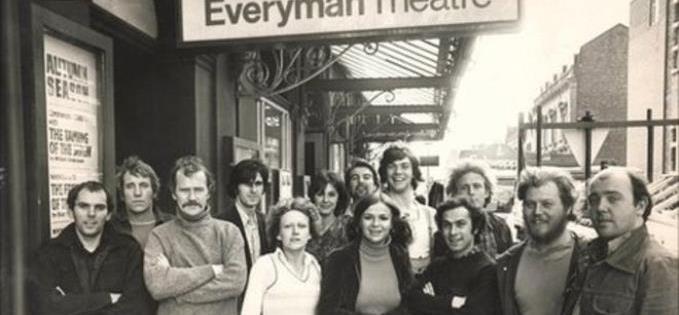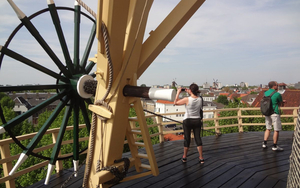LIVERPOOL is to get its first professional repertory theatre company for 25 years.
The Everyman Theatre has announced a resident acting ensemble will return to Hope Street in 2017.
The company season will run from January until July each year. This will be followed by an autumn season featuring co-productions with other theatre companies who “share a similar ethos to the Everyman company before the rock ‘n’ roll panto at Christmas,” it says.
The Everyman made its name as a rep and the rep made the names of many more. In the 1970s and 1980s it was the beating heart of the theatre, driving its profile in the city and nationally.
Early unknowns on the full time payroll included Julie Walters, Bill Nighy, Jim Broadbent, Jonathan Pryce, Tracy Ullman, Pete Postlethwaite and Bernard Hill. It provided the first platforms for Alan Bleasedale and Willy Russell’s work.
That all went in 1992 when the Hope Street theatre went bust.
The move to resurrect the ensemble format, which it describes as a “bold, new approach” may be seen as significant in the world of English provincial theatre.
There rep companies have been cut almost to extinction thanks to continual public funding squeezes. Instead of institutions setting the cultural, political and social conversation through homegrown drama, many have lost their voices, becoming venues relying for survival on more economic touring company shows and co-productions with others in the same boat.
The Everyman, which eventually merged with the Liverpool Playhouse for co-economic survival, says that from next year its shows will “aim to speak to the city-region, to tell stories that will connect with local audiences as well as responding to the world around us”.
 The star-studded rep company of the 1974 Everyman, and Roger Phillips
The star-studded rep company of the 1974 Everyman, and Roger PhillipsMembers of the new company will come from a number of backgrounds to create an ensemble with multiple skills, mixing performers who can sing and play instruments, alongside traditional acting skills.
There will also be room in the company for a graduate of the YEP acting programme plus traineeships in producing, technical theatre, acting and communications.
“Having reopened the Everyman in 2014 the theatres now want to take a fresh look at how work is created and seen, not only on the stages, but around the city as well,” it goes on.
“This pioneering way of working will see the theatres connecting more with the city’s communities while continuing to create inspirational and ground-breaking work on stage. As culture has become an ever-more important driver of Liverpool’s regeneration the ambition of this bold new approach matches the aspirations of the city.”
The company will also participate in city-wide events and celebrations.
Meanwhile, at the Playhouse the programme of touring work will be refreshed with what the theatres are calling Residencies. The Residencies will see touring companies spending longer in the city than they currently do, with visits lasting a few weeks rather than days. Residency companies will also work with theatres’ community and education teams.
 Everyman panto stalwart Francis Tucker with the theatres artistic director, Gemma Bodinetz.
Everyman panto stalwart Francis Tucker with the theatres artistic director, Gemma Bodinetz. Everyman & Playhouse Artistic Director Gemma Bodinetz said: “This vision is a distillation of all that we hope will make these theatres a passionate, creative engine that responds to our audiences and the artists eager to tell their stories. We want to surprise, dazzle and invigorate everyone that encounters us. “
Associate Director Nick Bagnall added: “The return of the company to the Everyman is a fantastic opportunity to work with what I’m sure will be a talented ensemble to tell great stories that matter to the people of this city. I’m excited for what this new approach to our work will mean for audiences, our work in the community and the brilliant YEP and I can’t wait to get started.”












